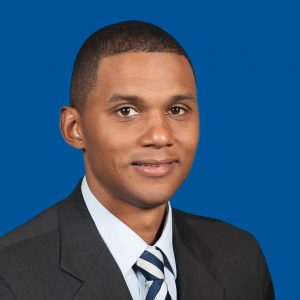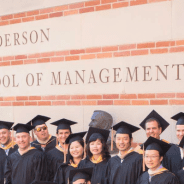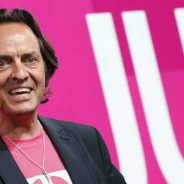Search results for :
10 UCLA Anderson Concurrent MBA Degrees
Dual, or concurrent, degrees allow students to earn an MBA alongside another graduate degree for a combined track. This gives students the opportunity to develop theoretical and practical knowledge in another field simultaneously with their MBA studies. It’s an excellent course of action for students interested in multiple areas at the same time.
At UCLA Anderson’s Graduate School of Management, applicants have the opportunity to choose between ten unique MBA dual degree programs. For each of these programs, the candidate must submit a separate application to each program, following the instructions set forth by each program’s website. Decisions for admission will also be made separately, and you must be admitted to both programs simultaneously to earn your dual degree. Continue reading…
New Entrepreneurship Opportunities at UW’s Foster School
Entrepreneurship plays a vital role in the U.S. economy. Forbes estimates that approximately 543,000 new businesses are launched each month and, according to the Bureau of Labor Statistics, three million jobs were created in 2015 by businesses less than a year old. So, it makes sense that entrepreneurship is assuming a more prominent role in business school courses and programming.
Samantha Ogle, the Assistant Director of the Buerk Center for Entrepreneurship at the University of Washington’s Foster School of Business, reports that roughly 40 percent of that school’s incoming full-time MBA students indicated that they chose UW “because of our reputation in entrepreneurship.” This high level of student interest is one of the reasons that the Foster School introduced a new degree program—the Master of Science in Entrepreneurship—that will open on June 19, 2017.
Smeal College of Business Offering Graduate Certificate in Corporate Accounting
The Penn State Smeal College of Business now provides a Certificate in Corporate Accounting (CORAC) option for postgraduate students. The online program requires 12 credit hours.
Sloan Student Talks Interplanetary Future at New Space Age Conference
On the heels of MIT Sloan’s second annual New Space Age Conference, the school recently explored the role commercial rocket startup Relativity Space hopes to play in closing the gap of an interplanetary future.
What Bain & Company Looks for in MBA Hires
Bain & Company—widely considered one of the most elite consulting firms in the world—is a coveted post-MBA destination for students at top business schools in every part of the globe. Headquartered in Boston with 53 offices in 34 countries around the world, Bain employs more than 7,000 people and counts as its clients leading Fortune 500 companies, as well as nonprofit and government organizations. And business is booming.
According to Keith Bevans, Global Head of Consultant Recruiting, the company has grown at a rate of 15 percent a year for the past 20 years, with no slowdown in sight. “We hire a little over 400 consultants a year—and that growth comes from the top business schools in the world,” he says. While the company primarily targets top-20 schools for MBA recruiting, it hires from more than 60 schools around the world and is committed to finding the best talent wherever it can.
Bevans is a Bain-lifer. He started as an associate consultant out of MIT, where he earned his bachelor’s and master’s degrees in engineering. He left Bain to get his MBA at Harvard Business School but returned upon graduation and has been there ever since. For much of his career, he was a client-facing partner in the firm’s Performance Improvement practice, with a focus on processes to improve effectiveness and efficiencies. Now he’s putting that expertise to work for his own company, and he couldn’t be happier.
His allegiance to the firm is clear, and it’s based in great part on his intimate understanding of its culture, which he describes as steadfastly collaborative and supportive. And he’s not alone. Bain frequently tops the “Best Places to Work” lists for Glassdoor, Vault and Consulting magazine, with employees praising its “great people and culture” and calling it “an incredible place to learn” and “the best place to start your career.”
It’s people, too, set Bain apart, Bevans agrees. “They are very smart, very passionate, maniacally focused on making a difference in whatever they are doing—and they wrap all of that in a layer of humility, which I think is very rare to find.”

Bain Partner Keith Bevans, Global Head of Consultant Recruiting
But interns alone are not enough to keep up with Bain’s growth. “It varies from year to year in terms of how many of our full-time hires are former summer interns, new full-time hires or former consultants. But the internship program never fills up the whole group.”MBA graduates are a big and important part of the company’s hiring, and many start out as interns in the 10-week summer associate program between their first and second years of business school. “It’s definitely an important on-ramp,” he says of the internship program, adding that it’s also a valuable opportunity for both Bain and its interns to determine fit. Notably, 90 percent of interns return to work for Bain full-time, Bevans adds. And there’s not a maximum cap on intern hires. “Our summer program is limited only by how many great students we can find,” he says. “We don’t have a target—rather I like to think of it as a minimum. If we find more great people, we will always go over whatever we set out for.” Which means there are opportunities for second-year students who may not have targeted Bain or consulting in their first year.
But interns alone are not enough to keep up with Bain’s growth. “It varies from year to year in terms of how many of our full-time hires are former summer interns, new full-time hires or former consultants. But the internship program never fills up the whole group.”
Don’t miss Clear Admit’s exclusive interview with Bevans, in which he talks about the firm’s commitment to employee training and support, goes into detail about Bain’s MBA recruiting process, shares where he looks and what he looks for in MBA hires and more. Our thanks to Bevans for making the time to share more about Bain with the Clear Admit audience.
Corporate Recruiter Q&A: Bain & Company’s Keith Bevans
Clear Admit: What sets Bain apart—not only among other consulting firms but also as an employer or company overall?
Keith Bevans: There are a couple of things about Bain people that set us apart. In my role, I have had the opportunity to travel to offices around the world hiring people, and what I have found is that Bain people are passionate about both the work they are doing and the things they are doing outside of work. They really jump right in with both feet. When you align that around our goal of having our clients be successful, you can really see the passion Bainies have for their clients—it just oozes out of them. We are having a big impact on our clients, and we are hiring people who are really energized by that.
With that as our starting point, we put them in an environment where we really do act like one team and do everything we can to support them in their professional life. From our global training programs to our onboarding program to the career counseling we provide—it’s all aligned around helping them be successful and be the best they can be. Bain people are people who want to have an impact.
Relative to other firms I think we are different in the sense that we have a very collaborative culture. We also have tremendously deep expertise in every major sector of the economy, and we bring that to our clients. “We’ve studied this and analyzed this, but why don’t we marry that with your expertise?” we’ll say to clients. We are not trying to prove that we are smarter than our clients but to work collaboratively with them to position them to succeed.
CA: How important are MBAs in your overall hiring? How many MBAs do you hire each year, both interns and full-time? Are you continuing to grow at the 15 percent rate you’ve enjoyed for so many years?
KB: MBA talent is a big and really important source of talent for us. For the last 20 years, we have been growing on average at a rate of 15 percent per year. That makes for a phenomenal slide when I put it in front of recruits. We hire a little over 400 consultants a year, and that growth comes from the top business schools in the world. The bulk of our targeted efforts focus on top 20 programs, but we have hired from almost 60 different MBA programs around the world.
With our growth, our primary focus is to make sure we are finding the most talented people out there. The breadth of schools from which we’ve hired shows that we are continuing to do innovative things through the Bain Passport and Webinar series to connect with students wherever they are. Our intern program this summer is once again—for the third or fourth year in a row—the largest we have run as a firm. It is definitely an important on-ramp, if you will. And 90 percent of the MBA interns who come for the summer return to Bain afterwards. We find the best, bring them in for the summer and very often they start their careers with us.
As for the 10 percent who don’t return—most of the time it’s actually more of a mutual thing. Maybe they tried consulting and decided it’s not a fit for them. And here’s another example of the supportive part about Bain: Even the interns who don’t come back often get support from the people who worked with them at Bain. They help them identify what parts of the internship were the right fit, and what roles might be a better match and then they help connect them with people who can help. After all, they are still Bain alums and still part of the Bain family.
Which Graduate Business School Students Have The Highest GMAT Scores?
Along with required work experience and undergraduate prerequisites, prospective MBA students also look at the average scores on the Graduate Management Admission Test (GMAT) for a certain school they are interested in applying to.
According the Graduate Management Admission Council, the exam is used as part of the admissions process for more than 6,100 graduate programs around the world. A GMAC study found that 261,248 GMAT exams were taken by prospective MBA students during the 2016 test year. The report also shows that less than 30 percent of scores were 650 or higher. The GMAT has a maximum score of 800. Continue reading…
Hot MBA Jobs: Program Analyst
If you are passionate about a range of topics, narrowing down a single career path can challenging. This is especially understandable given that the MBA education typically provides a strong and broad base of business knowledge. How can you help focus such a broad education into one career? If you have a strong business background as well as technological skill, you might want to consider a role as a Program Analyst.
With a job outlook that projects 21 percent growth to 2024 (a rate much faster than other industries), a position like Program or Computer Systems analyst could be perfect for someone with strong management skills and experience with technology.
What does a Program Analyst Do?
A program analyst is responsible for the design, development and implementation of an organization’s computer programming. Job responsibilities of a Program Analyst typically overlap with the jobs of a systems analyst and computer programmer. On the systems analyst side of the job, Program Analysts design and create software and computer systems, whereas Computer Programmer skills are used to implement the designs through the actual writing, updating and maintenance of existing programs. Program analysts should be able to stay on top of trends in technology so that an organization’s systems can be kept appropriately up-to-date.
The exact role of a program analyst will vary depending on the organization. Analysts may work with a particular computer system, whether financial, scientific or engineering, and find ways to customize the program for client. Analysts will also typically prepare cost analysis and help management determine how to create a system that is financially possible.
Top Skills for a Program Analyst
Problem Solving: Program Analysts will be required to work alongside clients to understand the need of each organization, and tailor the software to meet these needs. They must then develop software appropriate for each individual client, while also working within financial constraints.
Software Design and Fundamentals: A program analyst must have a strong foundation in software development, as they will be writing new programs, maintaining computer systems and perform repairs when necessary. Analysts must also stay up to date with professional and technical knowledge, often through attendance at educational workshops or participation in professional societies.
Analyzing Information: Program Analysts must be able to analyze many different sets of information, from the needs and constraints of a specific organization to the financial feasibility of the software they create.
Program Analyst and the MBA
A bachelor’s degree is the minimum education required for a role in program analysis, especially in a computer-related discipline such as engineering or mathematics. Mostly, a candidate must prove that they have the technical experience and skills required for the position.
Earning an MBA can be a great way to demonstrate technological aptitude while still revealing a strong base of business knowledge. Entering the field with an MBA can give applicants a competitive edge in the job market, while also proving management skills that may lead to long-term job growth. The average pay for the position in 2015 was $85,800 per year.
Best MBA Programs for a Career as a Program Analyst
-
Kellogg School of Management – Northwestern University: At the Kellogg School of Management, data analytics is offered a part of the MBA program. In addition, a number of executive programs are offered with a broad range of analytics-related focuses.
-
DeGroote School of Business – McMaster University: The DeGroote School of Business at McMaster University offers a number of classes tailored to students interested in the business analytics field. Last year, the school launched a new Executive MBA in Digital Transformation, which will serve as another option for students looking to focus their education on big data and strategic decision making.
-
Fox School of Business – Temple University: The MBA program at Temple’s Fox School of Business offers many facets which focus on business analytics and data interpretation. Each year, the school’s Global Center for Big Data in Mobile Analytics hosts a “Big Data Conference”, along with regular publication of business research.
What Are The Best Houston Marketing MBA Programs?
While Houston is perhaps more famously known as the communication hub for America’s astronauts, the sprawling city’s opportunities extend far beyond NASA. The Houston metro is home to half of the Fortune 500 companies in Texas and is ranked third among metro areas in Fortune 500 headquarters.
Renowned for its affordable cost of living and multitude of job opportunities, Houston also tops Forbes’ list of America’s coolest cities. Its favorable business landscape makes it an attractive option for anyone looking to pursue a career in marketing.
The Best Houston Marketing MBA Programs
McCombs School of Business – University of Texas at Austin
The McCombs School of Business offers a marketing specialization to its full-time MBA students. U.S. News rates McCombs as one of the top schools in the country to earn a Marketing MBA. At McCombs, a concentration in marketing will not appear on a student’s diploma, but will rather provide a roadmap for prioritizing courses. The flexibility of McCombs’s curriculum allows students to tailor their education to their career goals. McCombs focuses on training students to think critically and understand the complexities of managerial decision-making. According to Forbes, about 24 percent of McCombs graduates go on to pursue jobs in marketing or sales.
Rice University – Jones Graduate School of Business
It is no secret that Rice University is one of the most prestigious schools in Texas and the Jones Graduate School of Business provides registrants the choice to earn an MBA with a marketing concentration. Students can earn up to two concentrations, making Jones the perfect option for anyone who would like to specialize in marketing, but also wishes to gain immersive experience in a complementary field within the general management program, such as accounting or entrepreneurship. Jones has a student-to-faculty ratio of 9:1, making it a fantastic option for students who prioritize small class sizes and individualized attention from the staff. The program is constantly changing, but as of right now, Marketing MBA students take four required courses and earn the rest of their credit hours through electives.
C.T. Bauer College of Business – University of Houston
The C.T. Bauer College of Business has comprehensive options for students pursuing a Marketing MBA. The program offers the opportunity to earn one of six different marketing certificates, each of which demands nine credit hours:
- Business Consulting—The business consulting track zeroes in on problem-solving and project management. This is an ideal option for students who wish to pursue a career in business and management consulting. The curriculum includes two mandatory consulting labs.
- Digital Marketing Management—In this internet age, digital marketing has become ubiquitous. Bauer’s digital marketing management certificate is sure to provide the knowledge needed to get a job in this growing field. Students must take Introduction to Digital Marketing. After that, they can choose from the following suggested courses: Social Media Marketing, Search Engine Marketing, Web Analytics and Digital Marketing Lab.
- Entrepreneurship—This is the perfect track for entrepreneurial-minded students interested in creative thinking and pioneering innovation.
- Marketing Analysis—The Marketing Analysis certification is the ideal path for those whose interests lie in the big picture thinking required to assess the market and draw larger conclusions.
- Product Management—This track is appropriate for those who want to be involved in the entire marketing lifecycle of specific products.
- Sales Leadership—The Sales Leadership curriculum will empower students to inspire and seize growth opportunities for their future clients.
Cameron School of Business – University of St. Thomas
The Cameron School of Business MBA program provides nine concentration options, including marketing. CSB’s MBA requires 27 hours of the standard core business classes, including Marketing Management and Ethical and Moral Business Management. Additionally, students will devote nine credit hours to electives. To earn their elective credits, students can choose three of the following courses: Marketing Applications and Research, Seminar in Marketing, Global Marketing, E-Business Strategies, Entrepreneurship and Sourcing Management.
Booth Ranked 2nd In Latest U.S. News Part-Time MBA Rankings
According to the newest MBA program rankings from U.S. News & World Report, the University of Chicago Booth School of Business’ part-time MBA program came in ranked as the number two overall program in the nation. Continue reading…
George Mason Moves Up in Latest U.S. News Part-Time MBA Ranking
The full U.S News & World Report rankings officially debuted earlier this morning, with huge shifts for business schools all across the country. According to the newest part-time MBA rankings, George Mason University’s part-time MBA program is now ranked 53rd overall—a jump of 21 spots since last year’s rankings. Continue reading…
Alumni Spotlight: John Legere, T-Mobile CEO – MIT Sloan
In the early 1970s, Richard Branson was one of the first iconoclasts who crafted the idea of a “CEO as company mascot.” His presence and leadership helped launched the Virgin empire. Like so many entrepreneurs who followed, like T-Mobile CEO John Legere, that influence is hard to miss.
The Best Chicago Part-Time MBA Programs
Balancing a full-time job and graduate school isn’t easy. Often, students find themselves giving up all of their free time to earn their MBA at night or on the weekends. So, it’s of vital importance that MBA candidates choose the best part-time MBA program for them in order to have an optimal experience.
To help you out, we’ve high the best Chicago part-time MBA programs. Continue reading…
VIZIO CEO To Give Commencement Speech At UC Irvine Business School
VIZIO Inc. CEO, William Wang will give the Distinguished Executive address at the UCI’s Paul Merage School of Business commencement ceremony. The ceremony will take place at the university’s Bren Events Center on June 19 at 9:30 a.m.
Wang’s journey to become the founder and CEO of the company Forbes listed as one of America’s largest Private Companies in 2016 has been far from linear. After beginning his career in tech support at a firm that sold computer monitors, Wang decided to start his own companies, Mag Innovision and Princeton Graphic Systems, with the goal to “ … build a better monitor than the IBM standard,” according to an interview in Inc. Magazine.
Almost decade later, both businesses were flailing. Around the same time, the entrepreneur survived the Singapore Airlines Flight 006 plane crash, wherein 83 passengers and crew members were killed. This trauma gave Wang a sense of clarity; within two years, he had shut down his businesses and changed industries. Wang’s move to the television industry proved fruitful. With just two employees, he started VIZIO, an HDTV company dedicated to delivering “…high performance, smarter products with the latest innovations at a significant savings…” Essentially, Wang’s team turned flat-screen TV’s into an affordably commodity, rather than a luxury for a wealthy minority.
It is appropriate that Wang, whose company began with three people and is now a leading supplier of HDTV’s, should speak at The Paul Merage School of Business. Though the school is relatively young, it has quickly earned a reputation for offering top tier education, and is now ranked in the top 10 percent of AACSB-accredited programs.
Cambridge Judge Empowers Women to Become Rising Leaders
Currently, only 26 women serve as CEOs of Fortune 500 companies—roughly 5 percent—and only one in six board members are women (17 percent). While the numbers are up from twelve years ago when there were no women CEOs and only 10 percent of board members were women, there’s still a lot of work to be done. Judge Business School is among the MBA programs working to further bridge the gap with its Cambridge Rising Women Leaders Programme. Continue reading…
Chicago Booth Names Stanford GSB Professor as Its Next Dean
The path from the Stanford Graduate School of Business (GSB) to the University of Chicago Booth School of Business is becoming well worn, as Chicago Booth prepares to welcome its second consecutive dean from the Palo Alto campus. Madhav Rajan, who chairs the accounting department at Stanford GSB and served as Senior Associate Dean for academic affairs from 2010 to 2016, will take the helm at Booth on July 1, the school announced yesterday.
Sunil Kumar, who served as Chicago Booth’s dean from 2011 until leaving to become provost of Johns Hopkins University in July 2016, also came from Stanford, where spent 14 years, ultimately in the role of Senior Associate Dean. Since his departure, Douglas Skinner, also an accounting professor, has served as Interim Dean as Chicago Booth conducted a global search for a successor.
“We sought the most outstanding candidate whose values, ambition and abilities fully comport with the distinctiveness of Chicago Booth as one of methodological rigor in its research and education, and through that commitment one of high impact on the world,” President Robert J. Zimmer and Provost Daniel Diermeier said in a statement announcing Rajan’s appointment yesterday.
As Senior Associate Dean for academic affairs at Stanford GSB, Rajan led the school’s MBA program, including overseeing admissions, curriculum, the student experience and career management. While at the GSB, Rajan also launched new joint-degree programs with Stanford’s engineering school and led initiatives toward greater integration of the business school within the larger university.
He also served as boss to Derrick Bolton, Stanford’s long-serving Admissions Director. In an interview with Clear Admit in August 2016, Rajan shared that he had, in fact, pushed Bolton to pursue other opportunities, perhaps contributing to Bolton’s decision to leave the GSB this past September to head the recently launched Knight-Hennessey Scholars Program.
“I had been encouraging him to think about other things he could do because it is a difficult job and he has been doing it for 15 years,” Rajan told Clear Admit. “The way he does it, the intensity he brings to it, the effort level—I was amazed that he did it for as long as he did it.”
A Compassionate, Supportive Leader
Rajan’s comments to Clear Admit suggest that he is a compassionate, supportive leader who offers those who work for him the autonomy to chart their own course. Of Bolton he said, “There is literally nobody at the GSB who works harder than Derrick. The amount of time, love and dedication that he puts into admissions is amazing and beyond what anyone could be expected to do. That level of commitment I have never seen from anybody, frankly.”
Asked if Bolton’s replacement (who has yet to be named) might change the school’s enduring essay prompt, Rajan offered further insight into how he leads. “That will be completely up to the new admissions director,” he said. “We have very much a notion of empowering people in their roles here, and the person hired to manage admissions will have complete latitude to run things the way he or she sees fit.”
A Beloved Teacher and Respected Scholar
Rajan has also won accolades for his teaching. In 2000, the University of Pennsylvania’s Wharton School bestowed upon him the David W. Hauck Award, its undergraduate teaching award. He taught at Wharton before Stanford, from 1990 to 2000. Next month, he is also slated to receive the Robert T. Davis Award for lifetime service and achievement, the GSB’s highest faculty recognition.
Rajan holds a bachelor’s degree from the University of Madras in his native India, as well as two master’s degrees and a Ph.D. from Carnegie Mellon University. His research has focused primarily on analyzing management accounting issues through an economics lens, especially as they relate to the choice of internal control and performance systems in firms. Cost Accounting: A Managerial Emphasis, which he co-authored, is the leading cost accounting textbook used around the world. He also served as editor of the Accounting Review from 2002 to 2008.
Returning to a School on the Rise
Rajan is not a stranger to Chicago Booth, having served as a visiting professor in 2007-08. In a release announcing his appointment, he expressed his respect for the school and his excitement to return. “The values I have in research and education are deeply valued at Chicago Booth,” he said. “People come here to do rigorous, empirically based research and analysis, which provides the basis for a transformative student experience and an extremely effective MBA curriculum. We have an exciting opportunity to take Booth’s deep strengths and leverage them here and around the world. I am thrilled to have the chance to be dean at what is unquestionably the greatest academic business school.”
Chicago Booth has been something of a rising star among leading MBA programs over the past decade, threatening Wharton’s previously undisputed place alongside Stanford and Harvard Business School (HBS) as the best business schools in the world. The Economist has ranked Chicago Booth the number one business school for five years running, from 2012 to 2016. And in last year’s U.S. News & World Report ranking, Booth tied with Stanford for second, behind HBS and ahead of Wharton.
Chicago Booth’s upward trajectory began under Edward Snyder, who preceded Kumar as dean from 2001 to 2010. In that time, the school almost doubled its number of endowed professorships, more than tripled its scholarship assistance to students, moved to a new Hyde Park campus, expanded its presence in Singapore, established a new campus in London, successfully completed a capital campaign and more than doubled its endowment. Snyder also successfully courted an unprecedented $300 million naming gift from alumnus David Booth before leaving to lead the Yale School of Management. Kumar continued that momentum, helping raise more than $300 million, focusing on student recruitment—including increasing the female enrollment of full-time programs from 35 percent to 42 percent—and expanding courses for undergraduates. Now it’s Rajan’s turn to take the baton. It will be interesting to see what his leadership holds in store.
This article has been edited and republished with permissions from Clear Admit.
What Women Want in an MBA: Financial Aid and Flexibility
In honor of last Wednesday’s International Women’s Day, the Graduate Management Admission Council (GMAC) today released a new report entitled “What Women Want: A Blueprint for Change in Business Education.” For readers who may be too young to remember the 2000 romantic comedy also called “What Women Want,” it starred Mel Gibson as a chauvinistic advertising executive who suffers a blow to the head that renders him suddenly able to hear everything women around him are thinking. Though first instinct would be to assume that the two—Gibson’s rom-com and GMAC’s research—have nothing at all to do with one another, that’s not entirely true.
Continue reading…
The Top Marketing MBAs In Los Angeles
Earning an MBA is a great way to gain broad business knowledge that can be applied to many different roles and industries in the business world. As a result, an MBA degree can be ideal for students who haven’t yet made up their mind about their career path.
Yet even those who have known for a long time what path they want to pursue can benefit from an MBA education. To make the most out of an MBA, those who want to focus their degree can benefit from the option to focus or concentrate in a particular subject, which many schools offer.
If you are thinking about pursuing your degree in sunny Los Angeles and have an interest in marketing, there are a number of schools in the metro area which allow students to focus their degree. Below, we’ve rounded up some of the top Marketing MBAs in the Los Angeles metro.
California State University, Long Beach
The Evening MBA at California State University, Long Beach offers students the opportunity to choose a focus area and obtain a specialization for their MBA degree.
The Evening MBA at CSU is a self-paced MBA that allows students to choose how many classes they take each semester, with the option to either earn a general MBA or select a specialization. Marketing is among the several MBA specialization options available for students, including courses such as Marketing Concepts, Seminar in Marketing Policies, Seminar in Marketing Research and Marketing and Sustainability, among others.
Peter F. Drucker and Masatoshi Ito Graduate School of Management – Claremont Graduate University
The Drucker MBA program allows students to select an area of concentration for their degree, with options like strategy, global management and of course—marketing. The marketing program aims to help students “develop a critical understanding of key marketing concepts and gain analytical and evaluative skills to inform strategic marketing decision making”.
Argyros School of Business – Chapman University
The full-time MBA at Argyros School of Business is well regarded across the country, ranked 81st nationwide by U.S. News & World Report.
Students pursuing an MBA at Argyros can choose a ‘Course Track’ with just three electives that can help focus their education. To choose a Marketing Course Track, students must select three courses from options like Marketing Research, Statistical Models for Analytics and Internet & Social Media Marketing, among others.
College of Business and Economics – California State University, Los Angeles
The California State University at Los Angeles’ College of Business offers a number of flexible options for students to pursue their MBA in a cross-functional and integrative educational setting. Students have the option to select their graduate level courses within specific areas of studying, marketing included.
Graziadio School of Business and Management – Pepperdine University
The full-time MBA at the Pepperdine’s Graziado School of Business has been recognized as a top MBA program in the country by Bloomberg Businessweek and U.S. News & World Report. The program offers students a strong foundation in business through experiential MBA courses, also offering the chance to choose from a variety of MBA specializations.
The MBA in Marketing at Graziado is available for 12, 15 and 20-month MBA Students and focuses on providing students with the basic concepts, tools and techniques for developing a strong marketing strategy. Some course options include Global Marketing, Consumer Behavior and Business-to-Business Marketing.
Loyola Marymount University
The LMU MBA can be earned in 24-36 months or more, designed with a flexible schedule for meeting the needs of working professionals. The first year of the MBA requires students to complete core courses, where the second year allows more flexibility for focuses on a particular area of emphasis.
Students may choose to focus on a Marketing emphasis for their MBA, selecting from such courses as Business and Capitalism, Sales Force Strategy and Customer Relationship Management.
Marshall School of Business – USC
The MBA program at USC Marshall is a universally top-ranked degree which allows students to pursue a marketing focus, beginning with a required Marketing Management class as part of the core. In year two, marketing students will have the option to take courses that are part of the MS in Marketing program, such as Business Analytics, Customer Insights and Analysi, and Market Demand and Sales Forecasting.
The Paul Merage School of Business – University of California, Irvine
The Best San Diego Finance MBA Programs
The finance industry has always gone hand-in-hand in the MBA. Even as MBAs are becoming increasingly popular in other industries, finance is still the biggest MBA job sector and accounts for 22 percent of all MBA jobs, according to the 2014/15 QS TopMBA.com Jobs and Salary Trends Report.
The San Diego Metro is yet another business school destination chock full of MBA programs with finance concentrations. Here are a few of the top San Diego finance MBA programs: Continue reading…


















